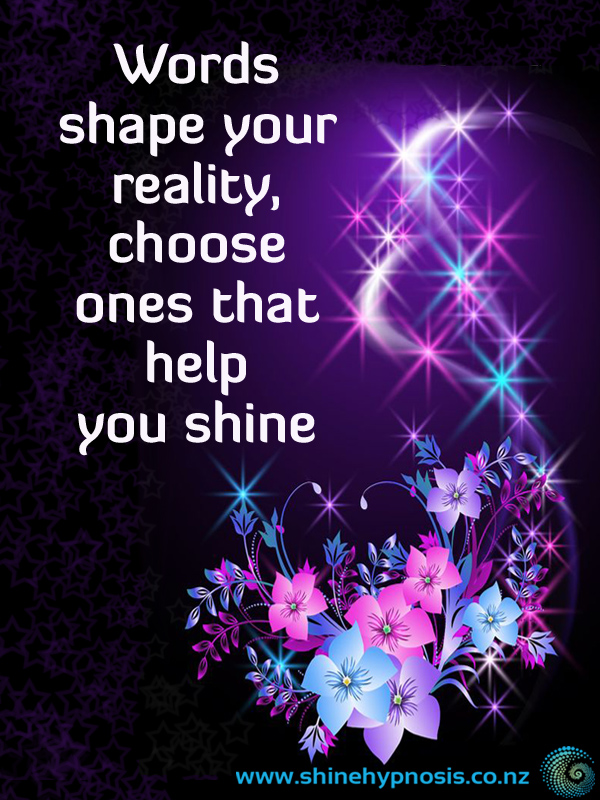
How is it that a bunch of letters arranged into a word can carry so much
power?
Because the words we choose to use, or more accurately what we associate
to these words, can evoke emotions and physical sensations that carry great
meaning when we hear them. You see, the words that you hear or use to represent
an experience ultimately become your experience.
And these words we use to label our experiences also actually have the ability to increase or decrease the intensity of the emotions we feel. For example, imagine when something happens that angers you – if you said quite colourfully that it “really f$#ked you off and made you furious” – these become associations which most likely serve to intensify the anger you feel. On the flipside, you could decrease the emotion by saying that it “bothered you a smidgen”, or “tinkled you” – and these such frivolous labels can even change your emotional state completely because they’re rather amusing!
Simple word substitutions like these alter our perception of things. For example, imagine the positive shift in your confidence if you classified the “nervous anxiety” you feel before a big presentation as “excited anticipation”.
We’ve tagged associations to words at a subconscious level, and because
of this people can link tremendous levels of pain, anxiety and even fear to
particular words. I know with ophidiophobia (fear of snakes) clients, just
hearing the word “snake” can make their skin crawl or even trigger anxiety
symptoms. Another example is a client I worked with who had experienced two
traumatic childbirths. In our first session, just mentioning the word ‘birth’
triggered panic and anxiety in her as this word was so deeply imprinted with
her experience.
Strong trigger associations like this are often formed during times of
heightened emotion. A really simple example of this is the impact of a love
song on someone newly loved up compared to someone who’s experiencing a break
up. Have you ever been through the process of selecting a baby name? We can
often either like or dislike a name based on people we’ve known who have that
same name.
How we interpret the words we hear requires us to access the
associations we’ve tagged to that word. For example, if you are asked “how is
the pain?” not only does this imply there should be pain, but your mind has to
search for pain and think about the things you associate to pain to understand
the question. For this reason I insist my clients adopt a new vocabulary – we talk
about comfort levels instead of pain.
With birth clients, because we’ve been conditioned to believe that
contractions are painful and labour is a painful laborious ordeal, the
connotations are often negative and extremely unresourceful. So I get my clients
to replace words that are likely to trigger negative associations with ones
that have more resourceful associations; “labour” is replaced by “birthing or
birthing process” and “contractions” is replaced with “surges” and “waves”.
Choose Words that Lead to Your Success
Because the words we consistently use shape the reality we experience,
tiny shifts towards more resourceful and empowering language like this can
hugely transform our emotional states and physical sensations and help us
successfully achieve our goals. Therefore, doesn’t it make sense if it’s the
association and expectation of words we use that contribute to the reality that
you start to consistently choose words that move you from less desirable and
unresourceful mental, emotional and physical states into the ones you would
prefer to experience? So, from now on, when anyone asks you how you are, forget
‘OK’, forget ‘good’, say you are ‘fabulous’!
